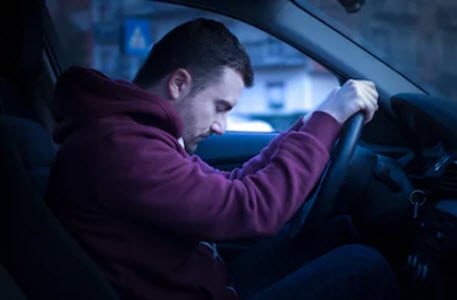
Alcohol and fatigue have the same effect on the brain and body. Driving after eighteen consecutive awake hours is like driving with a .05 BAC level. That’s above the legal limit for many South Carolina drivers. Alcohol and fatigue adversely affect judgment and impair motor skills. Additionally, there’s no quick fix for either impairment. Only time cures alcohol impairment, and only sleep cures drowsiness.
Arguably fatigued tortfeasors (negligent drivers) know they shouldn’t get behind the wheel. But they drive anyway, and intentionally put other people at risk. As a result, a Columbia car accident attorney is usually able to obtain maximum compensation in these cases. This compensation usually includes money for economic losses, such as medical bills, and noneconomic losses, such as pain and suffering.
Evidence in Drowsy Driver Wrecks
This compensation is available if a Columbia personal injury attorney proves negligence, or a lack of care, by a preponderance of the evidence, or more likely than not. Therefore, evidence is critical in these injury claims.
The time of day or night is often the best evidence of negligence in these cases. Most people are naturally drowsy late at night, especially if they’ve been up all day. Other direct evidence includes erratic driving before the crash, a tortfeasor’s inability to remember the last few miles traveled, and statements the tortfeasor makes about fatigue.
Medical conditions and drug use are often circumstantial evidence of fatigue. Many people struggle with sleep apnea. People with this condition basically nap all night. So, they wake up fatigued. The drug could be a prescription drug or an over-the-counter drug, like Sominex or NyQuil. Current prescriptions, prior purchases, and medicine bottles in the vehicle often establish drug use.
Attorneys often partner with private investigators and other such professionals to obtain the evidence they need in these cases.
Liability Issues
Fatigued driving usually isn’t against the law in South Carolina. In fact, many local law enforcement agencies don’t even have a code for driver drowsiness as a substantial factor in a wreck. Therefore, attorneys must use the ordinary negligence doctrine to obtain compensation in these situations.
Basically, ordinary negligence is a lack of ordinary care, which in this case is usually a duty of reasonable care. Compensation is available if a lack of care caused injury.
As is usually the case in life, minimum effort yields minimum results. To obtain maximum compensation, attorneys must go above and beyond and collect enough evidence to refute possible insurance company defenses.
Comparative fault is one of the most common legal defenses in car crash cases. This doctrine basically shifts accident fault from the tortfeasor to the victim. For example, an insurance company lawyer might admit that the tortfeasor was fatigued and argue that the victim’s aggressive driving substantially caused the crash.
When they hear such evidence, jurors must divide fault on a percentage basis between the two drivers. South Carolina is a modified comparative fault state with a 51 percent threshold. Victims are eligible for compensation if they are no more than 49 percent responsible for a car crash.
Rely on a Hard-Working Richland County Lawyer
Injury victims are entitled to significant compensation. For a free consultation with an experienced personal injury lawyer in Columbia, contact the Marc Brown Law Firm. We do not charge upfront legal fees in these matters.
Source:
sleepdr.com/the-sleep-blog/driving-drowsy-vs-driving-drunk-the-fatal-mistake-most-people-make/